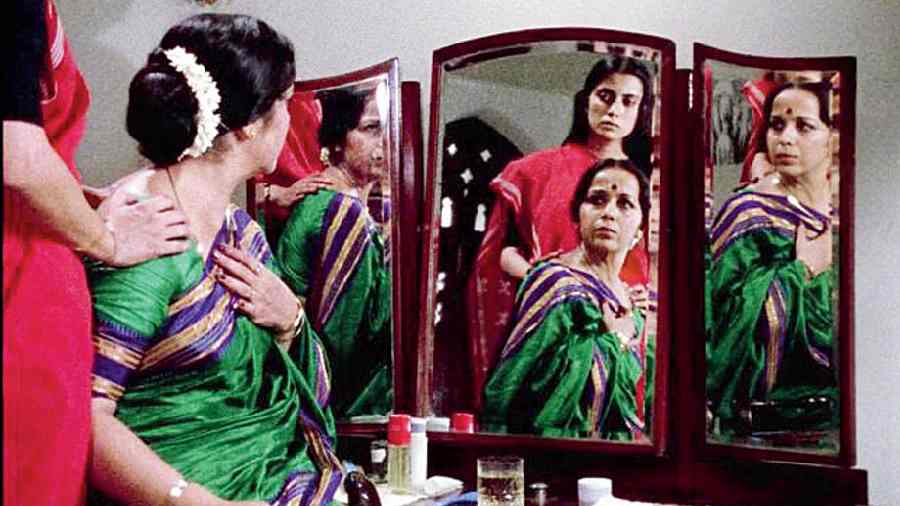Govind Nihalani’s Party, adapted from Mahesh Elkunchwar’s Marathi play, assembled some of the most important names from the parallel cinema universe. There’s Deepa Sahi, Vijaya Mehta, Rohini Hattangadi, Om Puri, K.K. Raina and Naseeruddin Shah (in a cameo). Yet, with such a stellar group of performers, Party does not have a protagonist to save the day. Each of them morph into the diameter of the double-edged, morality-play version of a screenplay by Elkunchwar.
Starting with a hard-hitting poem, Party subtly tears at the bourgeoisie complacency of celebrating art in the crux of national unrest and turmoil. In the wake of mainstream Bollywoood features that conveniently sidestep or erase current political subtext to fuel entertainment, the refocus on Party still holds stark relevance.
Divakar Bharve (Manohar Singh), an accomplished writer, is chosen by the government of India for a literary award for his contribution to Indian arts and cinema. To celebrate this occasion, the cultural elite of Mumbai gather at the residence of Damyanti Rane (Vijaya Mehta). There is the upcoming poet Bharat (K.K. Raina) who tries too hard to fit in. The family friend and doctor (Amrish Puri) passively indulges in the proceedings, while a couple (Soni Razdan and Mohan Bhandari) self-invite themselves. Then there is Mrs Barve (Rohini Hattangadi in a scene-stealing, National Award-winning turn) who is unable to keep it together in her lament for a failed career as an actress. She uneasily predicts something bad is going to happen (and it does). Keeping a watchful eye on each one is the Anglo-Indian English-speaking journalist Ruth (Pearl Padamsee). An important character — Marxist poet Amrit (Naseeruddin Shah) — remains absent, yet his ghost haunts the consciousness of all the members present.
Party steadily builds from a series of small tete-a-tetes that reveal dysfunctional relationships and a fractured sense of existence far away from reality. The scenes flow without any pause in the conversations, the chatter never stops. Everyone talks in a certain kind of facade, with an air of distance and protection. There are no silences. There’s a palpable sense of claustrophobia that develops because of this, where sewed identities and short-sighted idealism become the staple of pretentious discussions.
At the centre of it all lies Amrit’s absence. Everyone is aware of his conditions yet they do not want to address it. The audience is told how he started out as a poet and now lives in the jungles in order to help the tribal people resist the government’s unlawful usurping of their lands. The guests of the eponymous party smoke and drink, some frivolously dance behind closed doors — either avoiding confronting the reality of Amrit or simply showing indirect concern through constant chatter. In his absence, Amrit becomes the main topic of gossip and discussion, reflecting an upper-class snobbery with inflated idealism.
Nihalani infuses the deliberately verbose dialogue by Elkunchwar incredibly within the set of a house. Party is essentially a chamber piece, one where each character has a part to play. Behind the veneer of intellectuals lies a pretentiousness, which is revealed through the judgements passed at Bharat and Mrs Bharve. Though Party takes a strong, ironical look at upper-class snobbery and armchair activism, Nihalani nevertheless makes space for these characters to breathe and reflect. The characters do not turn into prototypes or become a microcosm of an entire class. Party approaches these characters with an abiding sympathy, and shows them as flawed individuals living as, one of the characters call, parasites. They are tormented in their silences hence they constantly talk. They are unable to sleep, the ghosts of their complacency will confront them. It all occurs in the dizzying silences of the night, Nihalani suggests, when the bubble of dilusion has been broken. Party is an uncomfortable ride. It still stings.
